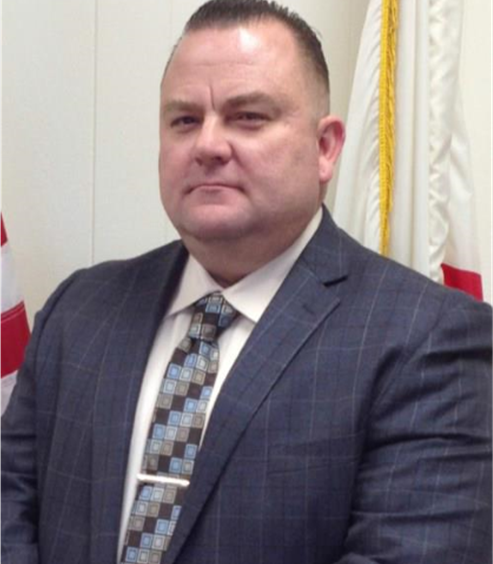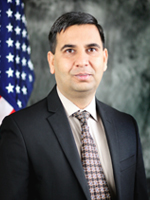California Rehabilitation Center (CRC)
Main Phone: (951) 737-2683
Physical Address: 5th Street & Western, Norco, CA 92860 (Directions)
- All Staff: P.O. Box 1841, Norco, CA 92860-0991
- Inmate General Mail: California Rehabilitation Center, Inmate Name / CDCR Number / Dorm & Bed, P.O. Box 3535, Norco, CA 92860
- Inmate Money Orders: California Rehabilitation Center, Inmate Name / CDCR Number / Dorm & Bed, P.O. Box 2000, Norco, CA 92860
Visiting an incarcerated person: learn how to visit an incarcerated person at our institutions.
Other Resources: explore family & friends resources, including how to contact or send packages to those incarcerated in our institutions.
- Vocational: Air Conditioning, Automotive, Electrical Works, Electronics, Carpentry, Plumbing, Computer Literacy, and Office Services & Related Technologies.
- Academic: Adult Basic Education, High School/GED, Literacy Program, College Program.
- Other: Cal-Trans and CAL-Fire Crews, Religious, Hospitality Friends Outside, Self-Help Programs: Narcotic Anonymous, Alcoholic Anonymous, Anger Management, Esjepo, TUMI, Veterans In Prison, Parenting and Toastmasters.
- Substance Abuse Programs: CRC hosts one structured Substance Abuse Program (SAP) geared towards assisting participating inmates and guiding them in the right direction to lead productive and meaningful lives.
DRP Programs
Integrated Substance Use Disorder Treatment (ISUDT)–Overview
On January 21, 2020, the California Department of Corrections and Rehabilitation (CDCR) and California Correctional Health Care Services (CCHCS) implemented ISUDT. ISUDT is a comprehensive and evidence-based cross-divisional program with pathways to treatment through DRP Cognitive Behavioral Interventions (CBI) programs referred to as:
CBI-Intensive Outpatient (Medical Classification T1, SOMS assignment code ISI) 2-hours/day, 5-days/week, 52-weeks completion
CBI-Outpatient (Medical Classification T2, SOMS assignment code ISO) 2-hours/day, 3-days/week, 14-weeks completion
CBI-Life Skills (Medical Classification T3, SOMS assignment code CB2) 2-hours/day, 3-days/week, 29-weeks completion
All participants will be assessed by medical and referred to one of the CBI classes.
Norco is home to the California Rehabilitation Center. Known as Horse Town USA, Norco is in Riverside County and is conveniently located near Intestates 10, 15, 60 and 91. Things to see and do in and around Norco include visiting the Fender Guitar Visitor Center or Mount Rubidoux and Stagecoach Parks. There are also the California Citrus State Historic Park, Victoria Gardens and the Mission Inn Museum in nearby Chino. If you enjoy planes and learning more about them, spend some time at the Planes of Fame Air Museum. The entire city of Norco is country themed with no sidewalks but plenty of horse trails, hitching posts and hospitality.


Details
CRC Center is a medium Level II correctional facility with an inmate population consists of felon commitments. The primary goals of CRC are to provide an atmosphere of safety and security to the public, visitors, staff, and inmates.
The administration at CRC is cognizant of the rights and entitlements of all CRC commitments. We fully support and adhere to a guidelines and provisions governing the Disability Placement Program and the Correctional Clinical Case Management System.
In addition to staffing, CRC is also responsible for providing 100+ correctional custody personnel to provide medical guarding and transportation services to Patton State Hospital. CRC also provides Fire Suppression, Conservation, and Community Service assistance to the public.
History
The building now housing California Rehabilitation Center opened in 1928 as the Lake Norconian Club, a luxury hotel. In December 1941, President F. D. Roosevelt turned the resort into a Naval hospital. The hospital first closed in November 1949, reopened in 1950 during the Korean War, then closed again in June 1957. In March 1962, the federal government donated the facility to the state to use as a narcotics center. To help ease overcrowding in the 1980s, CRC began housing felons as well as civil narcotic addicts.

Glen E. Pratt was appointed warden of California Rehabilitation Center (CRC) on March 4, 2022. He had served as acting warden since December 2020.
He began his CDCR career in 1995 at Chuckawalla Valley State Prison.
He has held numerous classifications, including correctional officer, sergeant, and lieutenant. In 2013, he promoted to correctional captain at the California Institution for Men (CIM).
In 2015, he promoted to associate warden at CIM and was responsible for numerous areas.
He was appointed to chief deputy warden at CIM on Oct. 31, 2018.

Muhammad Nasir, MD, MPH, MBA has been CEO at California Rehabilitation Center since December 2022. He began his career as Chief Executive Officer – Healthcare with California Correctional Health Care Services (CCHCS) in January 2016.
Dr. Nasir earned a Doctor of Medicine (M.D) from Nishtar Medical University & Nishtar Hospital in Pakistan in 2002. He was awarded a Master’s Degree in Public Health from California State University Fullerton, CA in May 2015 and a Master’s Degree Business Administration from The Paul & Virginia Engler College of Business, West Texas A&M University, Canyon, Texas in December 2019. Dr. Nasir also has earned certificates in Project Management from Knowledge Square in Saudi Arabia and Health Information Technology for the role of Trainer & Implementation Manager from Orange Coast College, CA. His other professional certifications include Lean Six Sigma Green Belt, Lean White Belt, and Electronic Health Record System (EHRS) Trainer.
During his career, Dr. Nasir has worked in a variety of medical administrative roles and has served in diverse hospital settings in the United States, Pakistan, and Saudi Arabia. For the last 10 years, he has been a leader in identifying and implementing initiatives that support organizational growth through a patient-centric examination of processes and procedures. His focus on a shared organizational vision and dedication to frequent and open communication have been key factors in regaining the respect and commitment of both internal and external stakeholders.
Local Inmate Family Councils (IFC’s) are a gathering of family and friends of the incarcerated who meet regularly with Wardens to support visiting since keeping strong family connections with loved ones is a powerful rehabilitative tool. These IFC’s promote visiting by clarifying rules and regulations as well as discussing health, education, vocational training, packages, books, and related issues. For more information on connecting with a local IFC, please visit the Statewide IFC website.